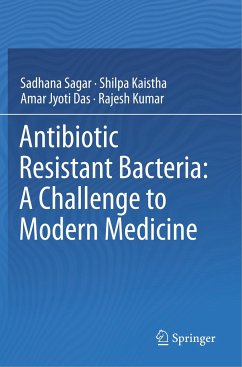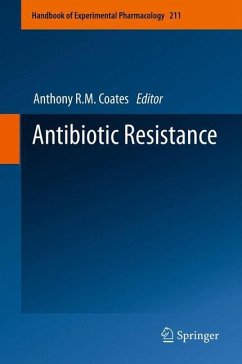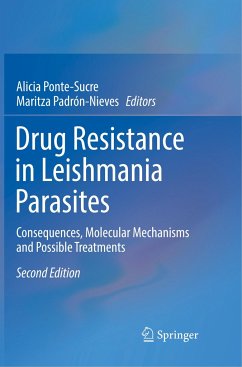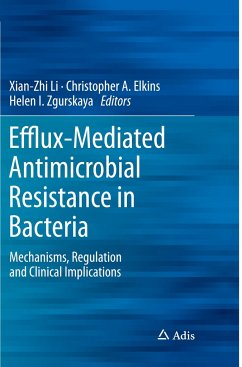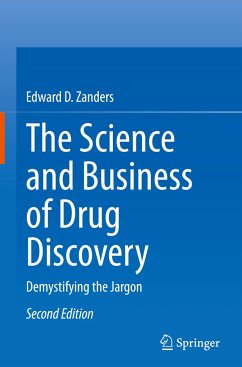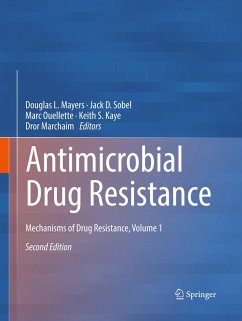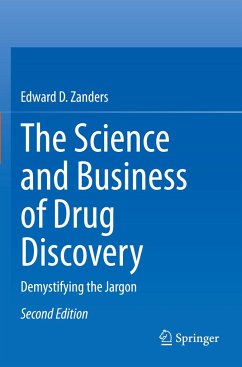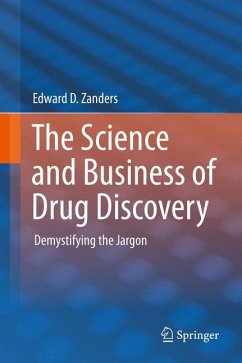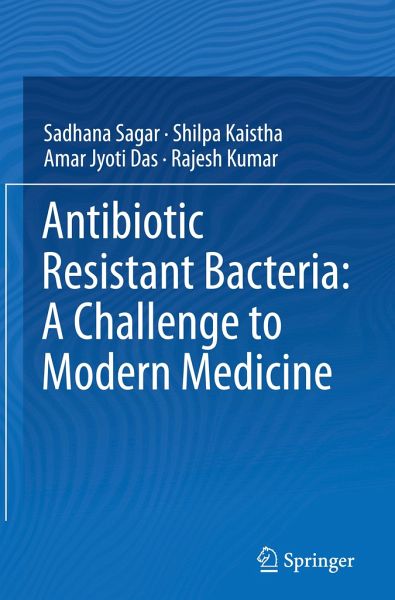
Antibiotic Resistant Bacteria: A Challenge to Modern Medicine
Versandkostenfrei!
Versandfertig in 6-10 Tagen
115,99 €
inkl. MwSt.
Weitere Ausgaben:

PAYBACK Punkte
58 °P sammeln!
This book summarizes the emerging trends in the field of antibiotic resistance of various gram-negative and gram-positive bacterial species. The ability of different species of bacteria to resist the antimicrobial agent has become a global problem. As such, the book provides a comprehensive overview of the advances in our understanding of the origin and mechanism of resistance, discusses the modern concept of the biochemical and genetic basis of antibacterial resistance and highlights the clinical and economic implications of the increased prevalence of antimicrobial resistant pathogens and th...
This book summarizes the emerging trends in the field of antibiotic resistance of various gram-negative and gram-positive bacterial species. The ability of different species of bacteria to resist the antimicrobial agent has become a global problem. As such, the book provides a comprehensive overview of the advances in our understanding of the origin and mechanism of resistance, discusses the modern concept of the biochemical and genetic basis of antibacterial resistance and highlights the clinical and economic implications of the increased prevalence of antimicrobial resistant pathogens and their ecotoxic effects. It also reviews various strategies to curtail the emergence and examines a number of innovative therapeutic approaches, such as CRISPR, phage therapy, nanoparticles and natural antimicrobials, to combat the spread of resistance.



